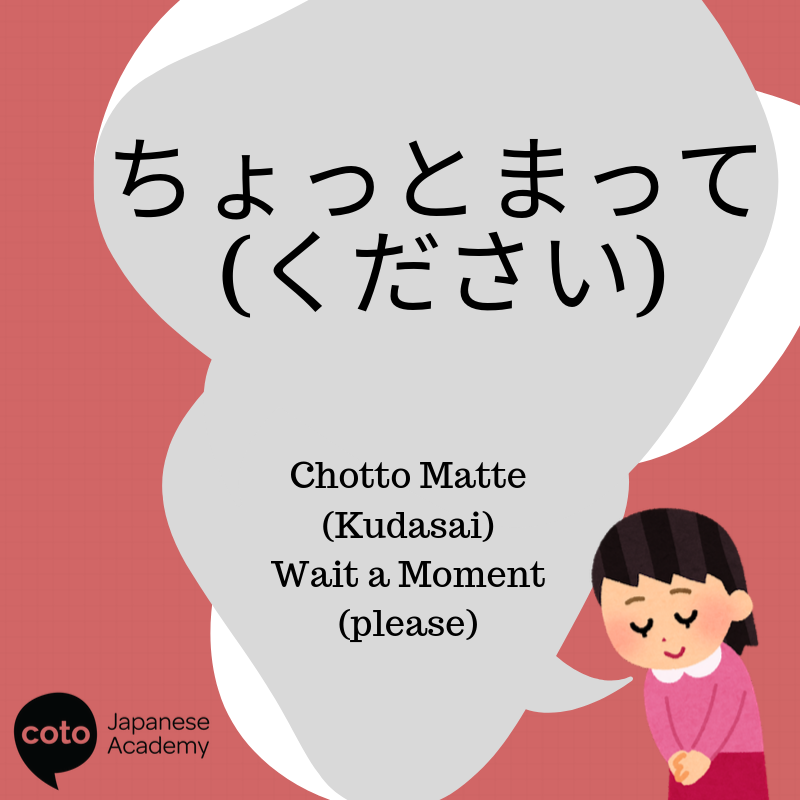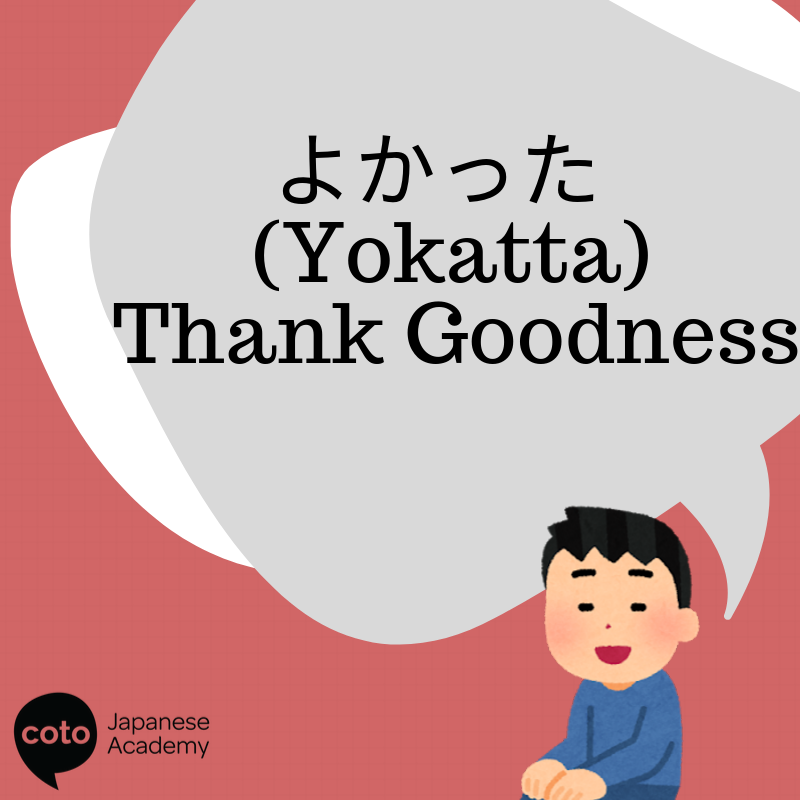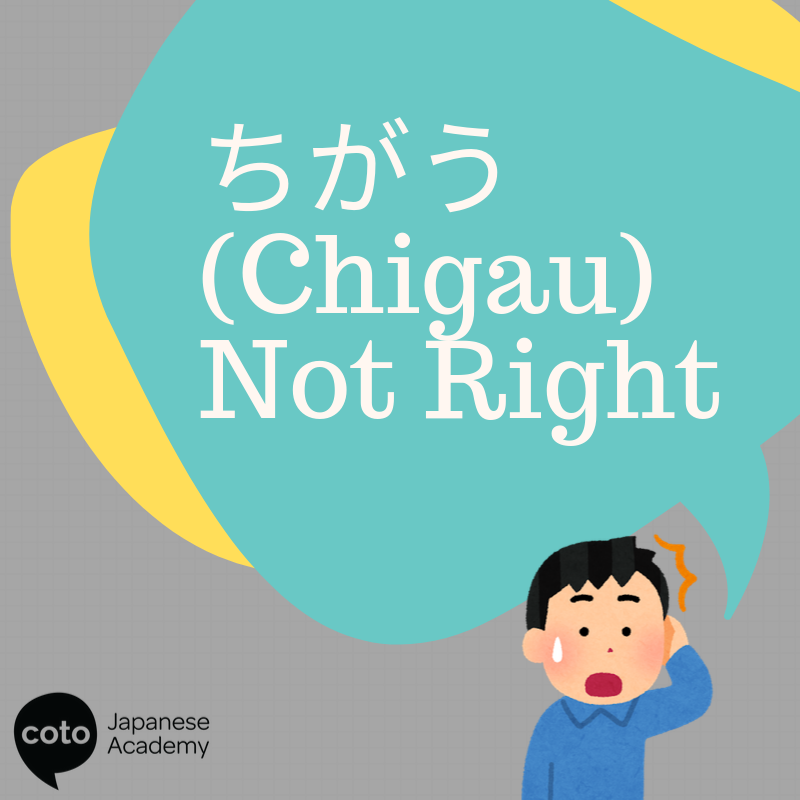Want to know a list of popular Japanese anime phrases that you can use in real life? Yes, you can learn Japanese from anime — but only if you do it right. The thing is, a lot of students mindlessly copy phrases they found on their favorite anime TV shows and films, but if you sound too much like an anime character, you’re in for a cringefest. At best, you’re stuck with saying “~senpai” and “eto“.
Here’s the problem: most anime — especially the seinen or shounen genre — use too-casual slang phrases. Apply them in real life, and you may sound like a yankee (Japanese juvenile deliquent), which isn’t the first impression you’d want to give to your Japanese friends.
In this blog post, we figured we’d share some natural Japanese anime phrases. They’re easy and, most of all, common. They’re perfect for beginners to mimic without being at risk of sounding stiff. You’ll hear them in popular series, like Naruto, Attack on Titan and Demon Slayer.
Here are the top 20 Japanese anime phrases that you can use to converse with your Japanese friends.
Note: Before we go further into the article, note that this article will mostly use hiragana, so prior knowledge of them is a must. If you’re still learning them, don’t worry — take a look at our hiragana chart to review them.

1. あきらめないで: Never give up!
The spirit of fighting and never giving up is the core of every action-packed or hero-themed anime. Think Naruto, Attack on Titan and Haikyuu. When you’re on the verge of giving up, think, “I can’t give up (あきらめないで)!” When your Japanese friend is struggling to learn English, encourage them by saying the popular anime phrase “あきらめないで.“
あきらめなくてよかった!
Akiramenaide yokatta!
I’m glad I didn’t give up!
Check out: 100 Common Words You’ll Find in Anime

2. ちょっとまって (ください): Wait a moment!
Another basic Japanese anime phrase you’ll find across all genres: ちょっとまって. It’s a casual, shortened form of ~てください, which means to “please do something”. ちょっとまってください is more polite, but it can still sound like you’re ordering someone.
We recommend saying ちょっとまって to your friends — or at least someone your age. For example, when your friend is walking too fast, you can say ちょっとまって!
Another indirect translation of this word is the English equivalent of “give me one second”. Technically, it holds the same meaning as “wait a moment”, but in Japanese, “one second” is “いちびょう”. It’s not culturally (nor contextually) understood. One way to avoid a few imaginary question marks is by making sure the direct translation (English-Japanese) is accurate.
急いで!電車に間に合わないよ!
Isoide! Densha ni maniawanai yo!
Hurry up! We won’t make it on time for the train!
ちょっと待って!
Chotto matte!
Wait a moment!
Check out: The difference between ください and おねがいします.

3. よかった: Thank goodness!
There’s a lot of translation to the Japanese adjective よかった. It’s the past tense of the word 良い, which can be both read as よい and いい.
Keep in mind that you can interpret よかった with a few things. The closest expression to in English is “Thank goodness” or “I”m glad.” In anime shows or films, you can see parents exclaim よかった when they found their lost child.
Another instance would be when someone finds their lost phone or wallet. They would sigh and exclaim “よかった!”
Alternatively, you can say よかったね~ which can mean, “Good for you,” or, “That’s great!”
財布をなくしてしまったと思ったけど、テブルの上にあった!
Saifu o nakushite shimatta to omotta kedo, teburu no ue ni atta!
I thought I lost my wallet, but it was above the table!
よかったね!
Yokatta ne!
I’m so glad to hear that!
Check out: 100 Most Common Japanese Adjectives You Need to Know
4. しかたない or しょうがない: Can’t be helped
The meaning of this Japanese anime phrase is quite straightforward. The kanji しかた means “method” or “way”. ない is the casual form of ありません, which is a negative form of the verb あります. A more grammar-accurate form of しかたない is しかたがない, which directly translates to “There is no way.”
The phrase means, “It can’t be helped”, and is used to indicate something is a foregone conclusion in a negative sentence.
For example, when you have to cancel a trip due to bad weather, there’s nothing you can do, so you’ll say しかたない or しょうがない.
Keep in mind that this common anime phrase is a casual expression, used between coworkers and friends. Don’t turn it into a formal form (しかたがありません) and expect to sound professional at work.

5. りょうかい: Roger!
りょうかい or りょうかいです can be used informally with your friends or family! It is an affirmation that means “Yes, I’ve got it!”
It is used to indicate that you understand something and you will execute on the person’s request. For example, when your mom asks you to buy eggs from the supermarket, you can use りょうかい or りょうかいです。
宿題を終わってから、必ず提出をください。
Shukudai o owattekara, kanarazu teishutsu o kudasai.
After you finished the homework, please submit it.
りょうかい!
Ryoukai!
Understood!

6. ちがう: Not right, the wrong way
The word 違う means “wrong”, and you’d usually use it to deny or refute something. Like よかった, Japanese people tend to use this in a lot of situations. It can simply mean “No,” “That’s not it,” or “It’s different.”
Your Japanese friend would say ちがう if you said something wrong or if they disagree on something. The more polite form of this verb is ちがいます. Japanese society practices being agreeable, so you might want to avoid (explicitly) contradicting someone in a formal setting. The last thing you’d want is to prove a point to your Japanese boss.
自分のシャツ、これでしょう?
Jibun no shatsu, kore deshou?
This is my shirt, right?
違う! それは私の!
Chigau! Sore wa watashi no!
No! That’s mine.

7. がんばって: I (You) will do the best!
You will come across one of these Japanese anime phrases very often. The word ganbatte stems from the verb ganbaru, or 頑張る (がんばる), which means “To do one’s best” or “Hang in there!”
The phrase がんばって (formally がんばってください) is used to encourage people to try hard. It can also be interpreted as “Good luck”. You can often hear people shouting がんばって in sports matches and marathons in Japan.
A more casual way to say がんばって is がんばれ
もう諦めたいよ。
Mou akirametai yo.
I want to give up already.
あと少し!頑張ってください!
Ato sukoshi! Ganbatte kudasai!
A little bit more! Hang in there!
Other variations include 頑張りましょう (“Let’s work hard together”) and 頑張ってくれ (“Do your best for me”).

8. いやだ: No way!
The phrase いやだ means “No way” or “Not a chance.” It simply means refusal to do something or you do not want to do it. It shows the speaker’s negative feelings, and it’s generally used to express something that is detestable or unpleasant. For example, if you are forced to go to a haunted house, you can say “いやだ”!
In spoken conversations where people speak fast (and cut things short), いやだ can turn into its colloquial form やだ.
ボクちゃん、野菜食べてくれる?
Boku-chan, yasai tabete kureru?
Little boy, can you eat your vegetables?
やだ!
Ya da!
No!
Check out: The Use of “Boku” for Young Boys

10. すげえ or すごい: Awesome!
Although the Japanese language isn’t gendered, there is a certain speaking preference used by boys, like specific Japanese first-person pronouns that are perceived as “masculine”. すげえ is mainly used by boys, and it is super casual. The word stems from すごい, but instead of an ending that sounds like “oi”, they’d drag the vowel into a long “ee”.
Instances such as if you are a boy, when your Japanese friend scored highly on an exam, you can say すげえ! You can use すごい when you feel happy about your friend’s accomplishment, “ええ?すごいじゃん!”
Check out: 20 Ways to Use Sugoi
11. しんじられない: I don’t believe it!
Have you ever taken a leap of faith — and actually succeeded? You can express your state of shock by saying 信じられない alone or add a よ particle at the ending to magnify your disbelief.
Let’s say that your friend is cooking for you, and you’ve heard that they are not a good cook. However, when you try their dish and find that it’s actually delicious, you might exclaim “I can’t believe it!”
信じられないほど美味しい!
Shinjirarenai hodo oishii!
I can’t believe it’s delicious!
Part Two
In this second part of Japanese phrases from anime that have real-world use cases, we introduce you to ten more phrases from anime.
11. 相変わらず: As usual
This is a Japanese phrase (or part of a phrase) that is commonly used to describe specific people or their behavior. The kanji for aikawarazu (相変わらず) first uses 相, which means: “mutual” or “together”. The second kanji in the word is 変わる which means “to change”. Put them together and you get “as usual” or “Without changing~”.
The phrase 相変わらず can be used for both making positive or negative judgments towards something or someone. In anime, you’ll find people can use it when they’re impressed or when they’re disappointed at a character’s unchanging attitude.
相変わらず彼女が美しい。
Aikawarazu kanojo ga utsukushii.
She is pretty as ever.
相変わら彼が酷い。
Aikawarazu kare ga hidoi.
He is as cruel as always.
12. ドキドキ: My heart is racing!
This is a Japanese onomatopoeia that describes the sound of your heart thumping. In particular, it’s used when you are nervous or flustered during an interaction with a crush.
You may have heard this multiple times if you watch romantic-comedy anime. Japanese people love onomatopoeia, and they often use repetitive words (such as doki doki).
Maybe doki doki doesn’t sound exactly like a heartbeat, but it’s pretty close. If you find yourself feeling nervous and notice your heart thumping, instead of using kinchou (緊張), you can use ドキドキ to describe your emotions.
先美人と話したんで、めっちゃドキドキだったよ!
Saki bijin to hanashitan de, meccha dokidoki datta yo!
I was talking to a pretty girl just now, and my heart was racing!
13. 任せて下さい: Leave it to me!
You have most likely heard this phrase in several different anime. You can use this in any situation where you are stepping in to help. The casual form you may have heard is 任せとけ (makasetoke) or 任せて(makasete). Both mean “leave it to me” or “I’ll handle this!”
Although you may have heard this used in anime fight scenes, you can of course use it in everyday situations. To use it at work, say the polite version 任せてください (makasete kudasai).
14. 気を付けて: Take care
Simply put, ki o tsukete means “take care”, or “be safe.” Since this uses the te-form, it is also a command or request. But in Japanese, these “commands” are not so strict. It’s like a friendly comment. To make it polite, add ください on the end (as with many Japanese phrases).
コンビニ行ってきますよ。
Konbini itte kimasu.
I’m going. tothe konbini (and returning).
うん。気をつけてね!
Un. Ki o tsukete ne!
Okay. Be careful!
15. びっくりする: To be shocked/surprised
Bikkuru suru means to be shocked or surprised. This word is used across all anime genres and shows of many kinds! Suru is sometimes omitted, but either way, the sentiment is the same.
16. 面倒さい: What a pain!
Alright, we know you know this one. Mendokusai is used to express frustration. Pretty straightforward, めんどくさい just means “what a pain”, and used for situations that are inconvenient or something you would rather not deal with.
It’s not heavy enough to be used for very serious matters – mostly just frustrating or potentially stressful scenarios.
17. ぎりぎり: Just in time
This is another Japanese onomatopoeia that literally means something along the lines of “just barely”. It is often used with time measurements, such as to be ぎりぎりセーフ (girigiri seefu), which means to “just barely be safe” – or “just barely made it”.
終電にギリギリのところで間に合った。
Shuuden ni girigiri no tokoro de maniatta.
I was just in time for the last train.
ギリギリのところで間に合う。
Girigiri no tokoro de maniau.
I just made it under the wire.
18. 申し訳ございません: I am deeply sorry
Possibly one of the most practical phrases on this list for polite scenarios, 申し訳ございません (moushi wake gozaimasen) is a very formal and sincere apology often used in business or customer service situations.
This phrase utilizes the humble form keigo. It literally translates to “I have no excuse” and should be used for very serious apologies. It is important in Japanese culture to also express your apology with your body language. This means bowing deeply and showing your face.
19. とりあえず: For now
This is usually used at the beginning of a Japanese sentence to mean, “meanwhile, I will …” or “for now”. Although it often appears in anime, you can use this in a variety of different situations.
It can be used in either casual or formal settings. It is often used in business settings to complement explanations.
20: 久しぶり: Long time no see!
久しぶり (hisashiburi) is one of the commonly used Japanese anime phrases that means “long time no see” in English. There isn’t a set time span for using this phrase, as it’s highly subjective.
Use this with friends or family. Or, if you want to be polite, you can say お久しぶりです. Adding the お at the beginning and the です at the end makes it more formal!
お久しぶりです。お元気ですか?
Ohisashiburi desu. Ogenki desu ka?
Long time no see. How are you?
Is it possible to learn Japanese through anime?
Yes, it’s possible to learn Japanese through anime as long as you use it as a supplement to your regular Japanese learning materials and resources.
How effective is learning Japanese through anime?
Learning Japanese through anime can be effective, especially for improving your listening comprehension and picking up new vocabulary, but it’s important to also study Japanese grammar and practice speaking and writing in Japanese.
What are some good anime to watch for learning Japanese?
Some good anime to watch for learning Japanese include “Your Name,” “Spirited Away,” “Attack on Titan,” “One Piece,” “Naruto,” and “Death Note.”
Should I watch anime with English subtitles or Japanese subtitles?
It’s recommended to watch anime with Japanese subtitles as this can help you improve your reading comprehension and pronunciation.
How can I improve my Japanese listening skills with anime?
To improve your Japanese listening skills with anime, try listening to the dialogue multiple times, pausing and rewinding when necessary, and practicing shadowing to improve your pronunciation and intonation.
What are some common Japanese phrases used in anime?
Some common Japanese phrases used in anime include “arigatou” (thank you), “sumimasen” (excuse me), “ohayou” (good morning), “daijoubu” (it’s okay), and “gomennasai” (I’m sorry).
Are there any online resources for learning Japanese with anime?
Yes, there are many online resources for learning Japanese with anime, including websites like Animelon and FluentU, and YouTube channels such as Japanese Ammo with Misa and Nihongo con Teppei.
Can I learn japanese by only watching anime?
It’s not recommended to learn Japanese by only watching anime, as it’s important to have a well-rounded approach to language learning that includes studying Japanese grammar, practicing speaking and writing, and using various learning materials and resources. While anime can be a fun and engaging supplement to your Japanese learning, it’s not a comprehensive or structured way to learn the language on its own. Additionally, some anime use slang or colloquial language that may not be appropriate in formal settings or everyday conversation
Start taking Japanese lessons and master anime phrases!
Get in touch with us and let us know how we can help you achieve your Japanese language target. If you’re unsure where you are, we provide a Japanese level check.
